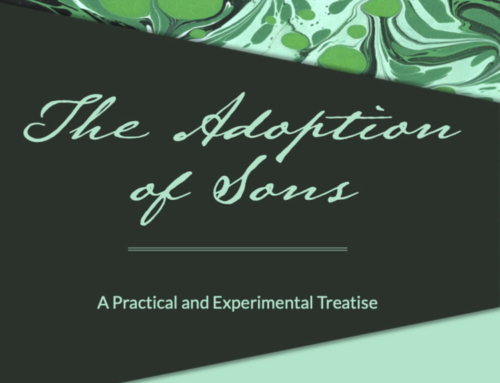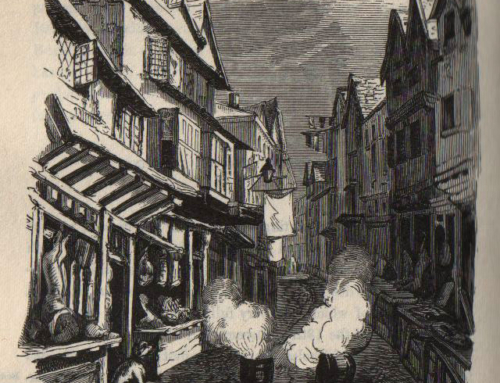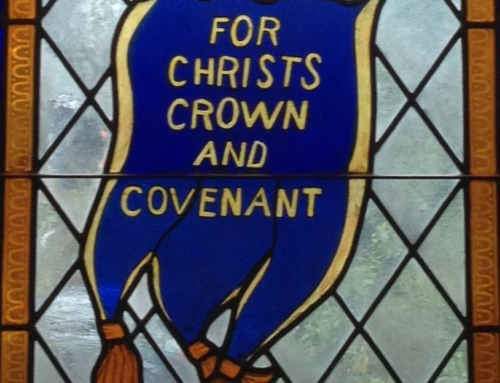The following is a monthly article written by Rev Kenneth Stewart to the Stornoway RPCS congregation.
Dear congregation,
Some in our congregation have been studying the Pilgrim’s Progress recently. In that classic of English literature, fully deserving of its status in both church and academy, the Puritan author (John Bunyan 1628-1688) allegorises the journey of the Christian towards glory under the figure of a man travelling from the City of Destruction to the Celestial City.
Less well known is a parody of the Pilgrim’s Progress called ‘The Celestial City’, a short story written by the American 19th century writer Nathaniel Hawthorne (1804–1864). Hawthorne was no real friend of the Puritan faith which animated the Pilgrim’s Progress, but he was astute enough to recognise the shift taking place in much of American religion.
In his own ‘dream’, he gives us an alternative religious journey from the one city to the other and begins by telling of our traveller’s arrival in the City of Destruction. Having read Bunyan’s description of the city, our traveller is both surprised and delighted to find that the old animosity between this city and the Celestial City has more or less disappeared. So much so, that it is now quite easy to travel from the one to the other and no one needs to leave the City of Destruction with any sense of the old rejection or alienation.
He is met by his guide, Mr Smooth-it-Away. When our traveller asks for the previous guide, Mr Great-Heart, he is told that the management had decided to let him go as he was beginning to be stiff and awkward. Mr Smooth-it-Away tells him that very few travellers take the old route now because the railway journey to the city is far more pleasant and comfortable than the old method of travel – so much so, that large travelling parties of the most respectable people could now undertake the journey easily and cheerfully to the Celestial City.
And, sure enough, our traveller notes that the old narrow gate where the old journey began (the ‘Wicket Gate’) had gone and, in its place, he finds a shiny new railway station, staffed by Evangelist. He is assured that there is now no need for a scroll or a map since all that has been replaced by a single ticket which would certainly be enough to admit him into Celestial City. Our new traveller, however, was a little uneasy because he had heard that this fellow called Evangelist was not the same person who had gone by that name before – but Mr Smooth-it-Away assured him that was not the case and that it would all be fine. He was also concerned to discover that the chief engineer on the train was none other than Apollyon – but he was assured that he was an excellent engineer who would make sure that the train would arrive just where he wanted it to arrive.
Another improvement on this train, compared with the old method of travel, was that you no longer needed to carry your burden – or baggage – for any length of time. The baggage was simply placed in the baggage department with the assurance that everyone could collect their baggage at the end of the journey (by the way, think about what Mr Hawthorne is implying here…)
As for the journey itself, the first relief was that there was no need to plough through the Slough of Despond — that bog full of past sins, fears, temptations and doubts, in which Christian sank and which made Pliable turn back – since there was now a bridge to cross it, built on a strong foundation consisting of books on morality, philosophy and rationalism as well as some recent sermons and commentaries.
Interestingly, there was no train stop at Interpreter’s House. Although a few pilgrims would still call there, since they were choosing to travel on the old route, Mr Smooth-it-Away told our traveller that the Interpreter had grown rather difficult and prejudiced – just like Mr Great-Heart and Evangelist.
Rushing past the cross (there was no need to stop there since burdens were already taken care of) the passengers were delighted at finding a way to travel to the Celestial City without leaving behind so much that was still precious to them. They could take all their baggage with them without feeling its weight.
As for Hill Difficulty, the travellers were glad to find that a tunnel now led through it. Happily, the excavated material from the hill was used up in levelling the Valley of Humiliation (the new management was both clever and efficient). Also, the previously dark Valley of the Shadow of Death was now brightly glowing with gas lamps.
Above all, our new traveller was most intrigued with the famous city of Vanity with its prominent Vanity Fair. Formerly shunned by travellers to Celestial City, it was now the longest stop on the train journey! This great capital of human business and pleasure was now an endless source of interest, full of fascinating people and fascinating things. He was relieved to learn that the residents of the place would never again execute someone like ‘Faithful’ who had been killed there many years previously. In fact, the residents of Vanity Fair are now positively delighted to welcome the passengers on the train bound for the Celestial City and many of them had chosen to take the trip themselves.
So attractive was this city that many chose not to reboard the train: ‘Many passengers stop to take their pleasure or make their profit in the Fair, instead of going onward to the Celestial City. Indeed, such are the charms of the place that people often affirm it to be the true and only heaven; stoutly contending that there is no other, that those who seek further are mere dreamers, and that, if the fabled brightness of the Celestial City lay but a bare mile beyond the gates of Vanity, they would not be fools enough to go thither.’
Unsurprisingly, having stopped there and disembarked, our new traveller found himself coming under its spell: ‘Day after day, as I walked the streets of Vanity, my manners and deportment became more and more like those of the inhabitants. The place began to seem like home; the idea of pursuing my travels to the Celestial City was almost obliterated from my mind. I was reminded of it, however, by the sight of the same pair of simple pilgrims at whom we had laughed so heartily when Apollyon puffed smoke and steam into their faces at the commencement of our journey. There they stood amidst the densest bustle of Vanity; the dealers offering them their purple and fine linen and jewels, the men of wit and humour gibing at them, a pair of buxom ladies ogling them askance, while the benevolent Mr. Smooth-it-Away whispered some of his wisdom at their elbows, and pointed to a newly-erected temple; but there were these worthy simpletons, making the scene look wild and monstrous, merely by their sturdy repudiation of all part in its business or pleasures’.
The situation had been made so much better by the fact that Vanity Fair had now become quite religious. Indeed, our traveller records that Vanity Fair now had churches on nearly every street and that the local ministers there say they find more respect in Vanity Fair than anywhere else. Our traveller heard it himself from the mouths of such respected ministers as Rev Shallow-Deep, Rev Stumble-at-Truth, Rev Wind-of-Doctrine and Rev This-to-day, whose currently topical preaching is soon to be replaced by Rev That-to-morrow.
As they travelled on, our new traveller notices that, every once in a while, the train would pass other travellers taking the old road. At that point, all the passengers on the train would lower their windows just to laugh at these travellers for their foolishness.
Finally, after passing the Delectable Mountains and the borders of Beulah Land (where, again, there was no stop), they came to the brink of the river and to the ferry boat which would ferry them over to the Celestial City. As they caught sight of the faces of the men who would ferry them over, they became a bit worried – more so as they saw that the prow of the boat was not directed towards the Celestial City but towards the Darkness and the Abyss.
Our traveller heard a sudden sound of crying and wailing all around him. Sadly, however, it was too late for them all.
This little allegorical dream is easier to interpret than Bunyan’s. It is the work of one who did not profess the Christian faith (to my knowledge, at least) but who, like many of the children of this age, can be wiser than the children of light.
The Apostle Paul told us of those who, ‘perish because they did not receive the love of the truth that they might be saved and, for this reason, God will send them strong delusion that they should believe the lie, that they all may be condemned who did not believe the truth but had pleasure in unrighteousness’ (2 Thessalonians 3: 10-11).
The real gate is still narrow, and the real road is narrow too.
Your minister






